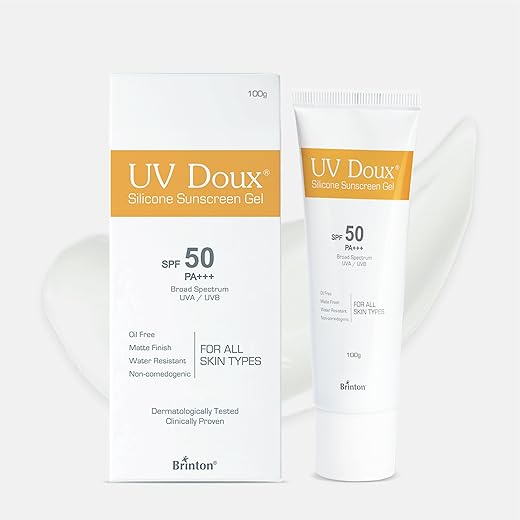This guide provides a comprehensive, step-by-step approach to choosing the right anti-aging ingredients specifically for Indian skin. Recognizing the unique characteristics and needs of Indian skin types, the guide emphasizes the significance of selecting effective ingredients that cater to specific concerns such as pigmentation, dryness, and elasticity. By offering clear recommendations and explanations, this resource aims to empower individuals to make informed decisions for their anti-aging skincare routines, ultimately promoting healthier, youthful-looking skin.



Vitamin C Serum: Best Used in the Morning or Night? Dermatologist Recommendations
Understand Your Skin Type
- Observe your skin after cleansing. Wait for about an hour and note how your skin feels.
- Identify if it appears shiny or feels greasy—this indicates oily skin.
- Check for tightness or flakiness; these signs suggest dry skin.
- Look for both oily and dry areas, especially on your T-zone (forehead and nose) paired with dryness on cheeks—this can mean you have combination skin.
- Consider if your skin reacts easily to products or the environment. Redness, irritation, or burning sensations recognize sensitive skin.
- Record your observations to understand which category your skin falls into. Use this information to select ingredients tailored to your skin type.



Research Common Anti-Aging Ingredients
Explore popular anti-aging ingredients like retinol, vitamin C, hyaluronic acid, and peptides. Recognize that retinol stimulates collagen production, helping to reduce fine lines and improve skin texture; introduce it gradually to avoid irritation. Discover vitamin C’s role as a powerful antioxidant that brightens the skin and evens out tone; look for serums with a concentration of 10-20%. Investigate hyaluronic acid, which hydrates the skin by retaining moisture for a plump appearance; seek products with concentrations of 1% or higher. Learn about peptides, as they signal skin cells to produce more collagen and elastin, enhancing skin elasticity; consider those in creams or serums to replenish loss due to aging.
Consider Skin Concerns
Identify your specific aging concerns by closely examining your skin in natural light. Look for fine lines around your eyes and mouth, which may indicate the need for products containing hyaluronic acid to enhance hydration and plumpness. Check for wrinkles across your forehead or on your neck; peptides can be beneficial in promoting collagen production and smoothing out these areas. Notice any uneven pigmentation or dark spots on your face, as vitamin C can effectively brighten and even out your skin tone. Finally, assess whether your skin appears sagging or loses elasticity; consider incorporating retinoids into your routine, as they help to firm the skin and improve its overall texture.
Check for Skin Compatibility
Perform a patch test to determine if new products agree with your skin. Apply a small amount of the product on a discreet area, such as your inner arm or behind the ear. Wait 24 hours to check for any signs of irritation, redness, or swelling. If no reaction occurs, it is likely safe to use the product on larger areas of your skin. For example, if trying a new moisturizer, start with a pea-sized amount on the patch area before applying it to your face.
Look for Natural Ingredients
- Explore ingredients like aloe vera, known for its soothing and hydrating properties, which helps maintain skin elasticity and reduce the appearance of fine lines.
- Incorporate turmeric, renowned for its anti-inflammatory and antioxidant benefits, to brighten the skin and combat signs of aging.
- Utilize green tea, rich in polyphenols, to protect against environmental damage and promote healthy skin, giving it a youthful glow.
- Seek out products containing these natural ingredients, and consider using homemade masks or serums that harness their potency for optimal skincare results.
Evaluate Product Labels
Read the labels of skincare products carefully to check for the concentration of active ingredients. Look for ingredients like hyaluronic acid, which should ideally be present in concentrations above 1% for optimal hydration, while vitamin C should be stable and listed among the first five ingredients for effective brightening. Avoid products containing harsh chemicals such as sulfates or alcohol, which can irritate and strip moisture from Indian skin, leading to dryness and sensitivity. Instead, seek out ingredients like glycerin and ceramides, which help maintain skin’s natural barrier and hydration.
Consider Climate and Lifestyle
Assess the climate in your area, recognizing how humidity, temperature, and seasonal changes can affect your skin. Adjust your skincare routine accordingly; for instance, use lighter products in humid conditions and richer creams during dry periods. Monitor your lifestyle habits, such as diet, exercise, and stress levels, as these can also impact your skin’s health. Choose ingredients that address your specific skin needs, considering how both climate and lifestyle play a role in your skin’s reactions.
Consult with a Dermatologist
- Seek an appointment with a dermatologist if you’re uncertain about your skincare needs.
- Prepare a list of your skin concerns, such as dryness, acne, or sensitivity, to discuss during your visit.
- Share your current skincare routine and any products you use to help the dermatologist understand your situation better.
- Ask specific questions about ingredients suited for your skin type, and request personalized recommendations tailored to your skincare goals.
- Follow the dermatologist’s advice and integrate their recommendations slowly to monitor how your skin responds.
Monitor Results and Adjust
- Track changes in your skin by maintaining a journal; note any improvements or irritations you observe after introducing new ingredients. For example, if you start using a vitamin C serum, log any brightness or sensitivity experienced in the days that follow.
- Assess your skin’s overall condition weekly to determine if adjustments are necessary; look for signs of dryness or breakouts that may indicate the need for a lighter formulation. If an essential oil causes irritation, consider diluting it or discontinuing its use.
- Experiment with different combinations by layering products; for instance, if your skin feels too oily with a heavy moisturizer, try a lighter gel-based alternative while monitoring the response.
Making Informed Choices
In conclusion, choosing the right anti-aging ingredients for Indian skin is essential for achieving visible results and maintaining youthful vitality. By taking the time to understand your unique skin type, researching effective ingredients, and addressing specific concerns, you can craft a personalized skincare routine that enhances your skin’s health and appearance. Empower yourself with knowledge, and embrace the journey towards timeless beauty.
Essential Supplies Needed



Essentials for Youthful Skin
Effective Techniques and Products for Youthful Indian Skin
- Start with Cleansing: Use a gentle cleanser that suits your skin type to remove impurities without stripping moisture. Look for hydrating or mild formulations
- Exfoliate Regularly: Incorporate a mild exfoliator 1-2 times a week to remove dead skin cells and promote cell turnover. Choose products with ingredients like glycolic acid or lactic acid that are suitable for Indian skin tones
- Moisturize Daily: Use a lightweight, hydrating moisturizer that contains ingredients like hyaluronic acid, vitamin E, or glycerin to keep your skin supple and nourished
- Incorporate Sunscreen: Apply a broad-spectrum sunscreen with at least SPF 30 daily, even on cloudy days. This is crucial for preventing premature aging and protecting against UV damage
- Consider Targeted Treatments: Introduce serums or creams containing antioxidants (like vitamin C) and retinoids gradually. These can help in reducing fine lines and improving skin texture over time
Essential Tips and Ingredients for Youthful Indian Skin
Yes, there are several herbal and natural remedies that are traditionally used in Indian skincare for their anti-aging properties, particularly suited for Indian skin types. Here are a few:
- Turmeric: Known for its anti-inflammatory and antioxidant properties, turmeric can help brighten the skin, reduce signs of aging, and improve elasticity. It can be used in face masks mixed with yogurt or honey.
- Aloe Vera: Rich in vitamins and antioxidants, aloe vera helps to hydrate the skin, improve elasticity, and may reduce the appearance of fine lines. Applying fresh aloe vera gel directly to the skin is common.
- Neem: Neem possesses antibacterial and antioxidant properties. It can help fight skin infections and is often used in face packs to promote clear skin and reduce signs of aging.
- Sandwood (Chandan): Sandalwood is known for its cooling properties and can help with skin pigmentation. It also has anti-inflammatory properties that can reduce redness and irritation, giving the skin a youthful appearance.
- Kumkumadi Oil: A traditional Ayurvedic formulation, kumkumadi oil is rich in antioxidants and is believed to improve skin tone and texture, reducing dark spots and promoting an even complexion.
- Rose Water: Used as a toner, rose water helps to maintain the skin’s pH balance, hydrate the skin, and reduce the appearance of fine lines.
- Gotu Kola (Centella Asiatica): Known for its collagen-boosting properties, gotu kola can help improve skin elasticity and reduce wrinkles.
- Green Tea: High in antioxidants, green tea can help protect against skin damage and may reduce signs of aging when applied topically or consumed as a beverage.
While these remedies can benefit many, individual skin reactions may vary, so it’s recommended to conduct a patch test and consult with a dermatologist before fully incorporating new treatments into your skincare routine. Additionally, maintaining a healthy lifestyle, including a balanced diet, hydration, and sun protection, is crucial for effective anti-aging.








Thanks for sharing your experience! Vitamin C and hyaluronic acid are indeed fantastic for hydration and brightening. And yes, sunscreen is a must! Keep up the great work with your skincare routine! 🌞
Hey everyone! Just wanted to share that I’ve had great results with using a blend of vitamin C and hyaluronic acid. It’s been a game changer for my dry Indian skin, especially during the winter! Also, don’t forget to layer sunscreen every day, even if you’re indoors. Protecting your skin is key to preventing aging! 😊
Can anyone recommend specific products for anti-aging on Indian skin? I’m particularly looking for something that works well for fine lines and dark spots. Thanks in advance! 🙏
Absolutely! For fine lines, I recommend trying The Ordinary’s Retinol 0.2% in Squalane. For dark spots, you might want to check out L’Oreal’s Revitalift Vitamin C Serum. Both have great reviews and could be effective for your concerns! Good luck! ✨
I recently started applying the tips from this guide, and I can already see a difference! For example, I focused on using natural ingredients like saffron and turmeric in my DIY face masks. My skin feels brighter and more youthful! Can’t wait to see how it goes in the long run!
That’s amazing to hear! Saffron and turmeric are excellent choices for Indian skin. They have anti-inflammatory properties and can really help with brightness. Keep monitoring your skin’s response as you continue, and feel free to share your results! 🌟
I tried following the steps in the guide but got stuck while checking for skin compatibility. My skin is sensitive, and some products caused irritation. Any tips on how to know which ingredients are safe for sensitive skin? Help! 😩
It can be tricky with sensitive skin! Always do a patch test before applying new products. Look for ingredients like aloe vera, chamomile, or calendula, which are generally soothing. If irritation persists, consult a dermatologist for personalized advice. Hang in there! 🌼